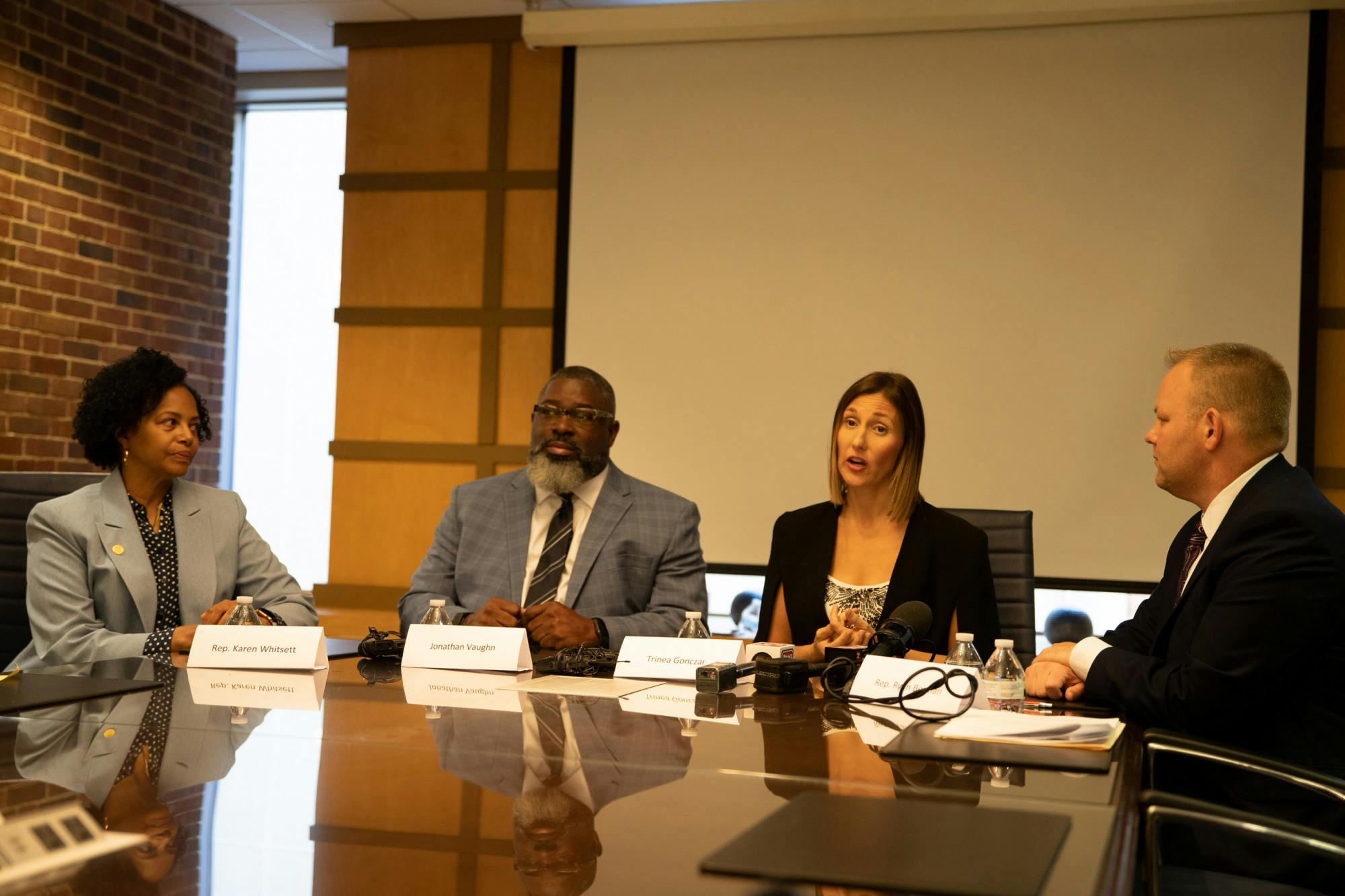Survivors of ex-MSU doctor Larry Nassar and late University of Michigan doctor Robert Anderson testified before the House Oversight Committee Thursday morning in favor of a legislative package that will make it easier for survivors of sexual assault to report their assaulters.
House Bill No. 4306, introduced by Rep. Karen Whitsett, extends the statute of limitations for survivors, allowing them to report cases of sexual misconduct up to one year after it took place, rather than the previous 90 days. House Bill No. 4307, introduced by Rep. Ryan Berman, clarifies that government agencies do not have immunity with cases involving criminal sexual conduct.
"What our bills do is allow survivors of these horrific acts of abuse to get their day in court," Berman said. "It's not to tip the scales of justice one way or the other, but it's to allow them to seek justice."
Former gymnast and Nassar survivor Trinea Gonczar spoke to the committee, sharing her experiences of being abused from 8 to 24 years old.
"Assault takes time to process," Gonczar said. "Just because someone was raped early as a child, they should not be penalized. They should still be protected and offered justice."
Whitsett's bill will give survivors more processing time to report the criminal sexual misconduct.
"No one should have to go through this and not be able to tell someone," Whitsett said. "Ninety days is not enough time. It just simply isn't. One year isn't enough time, but we have to start somewhere. We have to open up that door and get a start because everyone deserves to be able to have someone confronted about what they have done to them."
Former University of Michigan football player and Anderson survivor Jonathan Vaughn told his story of assault to the committee. He said as a young student athlete, he and his teammates were taught to trust their doctors. He didn't realize Anderson's practice was abuse until two weeks after his 50th birthday when other survivors like him came forward.
"(The University of Michigan) made a choice not to protect us," Vaughn said. "Instead, the university enabled our abuse. I expected a safe environment."
He believes that incidences of sexual abuse will continue to happen unless this legislation is passed.
"This will go down as the largest sexual abuse, rape and cover-up in the history of sports," Vaughn said. "And I think we have the time, right now, we can stop this."
Other Anderson survivors and former University of Michigan athletes Tad Deluca and Cathy Kalahar testified before the committee as well, urging them to pass the bills.
"Survivors' suffering will be lifelong," Gonczar said. "But these legislation bills will be at least a glimmer of hope to thousands. I stand here today in solidarity to remind you all what the face of a survivor looks like and to remind you that all justice is truth in action."
Support student media!
Please consider donating to The State News and help fund the future of journalism.
Discussion
Share and discuss “Survivors from MSU, U-M advocate for legislative package” on social media.







